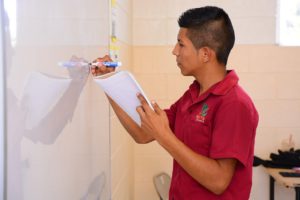Image by Free-Photos from Pixabay
Real and Unreal Conditional
English has two different types of conditional sentences, real conditional and the unreal conditionals. The real conditional expresses uncertainty about a condition (in an if-clause) and a result or outcome (in a result clause). For example, imagine that you’re waiting for your friend to arrive at a restaurant, but she’s late and you have no idea where she is or when she’ll arrive. You might say:
- If Jen left her apartment on time, she should be here by now.
- If Jen took a taxi, then maybe she got stuck in traffic.
If you want to read more about the real conditional, check out this post.
The unreal conditional expresses a hypothetical situation, something that you know is not true. Again, imagine that you’re waiting for your friend Jen, and you get a text telling you that she left her apartment twenty minutes late and decided to walk to meet you. You might say:
- If Jen had left her apartment on time, she would be here already.
- If Jen had taken a taxi instead of walking, she would have gotten here on time.
As you can see, with the unreal conditional, you use a conditional verb (with would) in the result clause, and a past tense verb in the if-clause. Let’s look at the most common tense combinations.
Present Hypothetical Situation
If the hypothetical situation takes place in the present, you use the simple past in the if clause, and would in the result clause. For example, if you’re watching a French film but you don’t speak French, you may say:
- I don’t speak French. If I spoke French, I would understand this film.
- I don’t understand this film. If I understood this film, I would enjoy it more.
- I don’t study French. If I studied French, I would watch a lot of French films.
The speaking, understanding, and studying all have a present tense (now or in general) meaning, but since they’re unreal – hypothetical – you use the past tense spoke, understood, and studied after if.
If the if-clause verb is be, you always use were, even if the subject is I, he, she, or it.
- I’m not you. But if I were you, I wouldn’t do that.
- John is a poor student. If he were a better student, he would get better grades.
- The weather is bad. If the weather were nicer, we would go to the park.
In the result clause, you use would with every verb except can. Can becomes could in the conditional. (But the related am/is/are able becomes would be able.)
- If I spoke French, I could understand this film.
- If the weather were nicer, we could go to the park.
- If they wrote more clearly, we would be able to understand.
You can use progressive/continuous tenses in either the if or the result clause. Just make sure you change am/is/are …ing to were …ing in the if-clause, and am/is/are …ing to would be …ing in the result clause.
- I am not following a diet. But if I were following a diet, I wouldn’t be eating this cake.
- It’s raining now. But if it weren’t raining, we would be eating outside.
- If we were taking the subway instead of a taxi, we wouldn’t be sitting in traffic.
Past Hypothetical Situation
If the hypothetical situation is in the past, you use the past perfect (had…) in the if-clause, and past conditional (would have…) in the result clause.
- I didn’t see Jill this morning. If I had seen her, I would have said hello.
- We didn’t leave on time. If we had left on time, we wouldn’t have gotten here so late.
- My friends haven’t called me. If they had called me, they would have told me the news.
- Bill didn’t study. If he had studied, he would have gotten a better grade on the exam.
You can of course mix tenses between the if-clause and the result clause.
- If we had left on time, we wouldn’t be rushing right now.
- If they had listened to your advice, they would be happier now.
- If Sarah had gone to bed earlier, she wouldn’t be yawning so much.
Future Hypothetical Situation
If the hypothetical situation is in the future, you’ll often hear the past tense in the if-clause in conversational English. The result clause will use the present conditional with would.
- If we left early tomorrow morning, we would arrive before noon.
- If you went to bed now, you would get a good amount of sleep.
- If you told them the truth, they would understand.
But in more formal or written language, the if-clause uses were to.
- If we were to leave early tomorrow morning, we would arrive before noon.
- If you were to go to bed now, you would get a good amount of sleep.
- If you were to tell them the truth, they would understand.
If you would just listen!
In the regular unreal conditional, you don’t use would or could in the if-clause. But if you listen closely to English speakers, you will hear would (just/only) and could in if-clauses, followed by a future (will) in the result clause.
- If you would just listen to me, I’ll explain everything!
- If they would only give me a chance, I’ll show them that I can do this.
- If you could wait one minute, I’ll help you.
These aren’t unreal conditionals. This construction is a way of asking (or begging!) someone to do something in order for a certain outcome to happen. That’s why the result clause isn’t a conditional, but rather a future with will.
Learn English with the Language Garage!
If you’re interested in ESL/EFL lessons, please check out our English courses. We have private lessons, lessons for you and a friend or colleague, or small groups. Or see our other posts on English grammar, vocabulary, and more.





